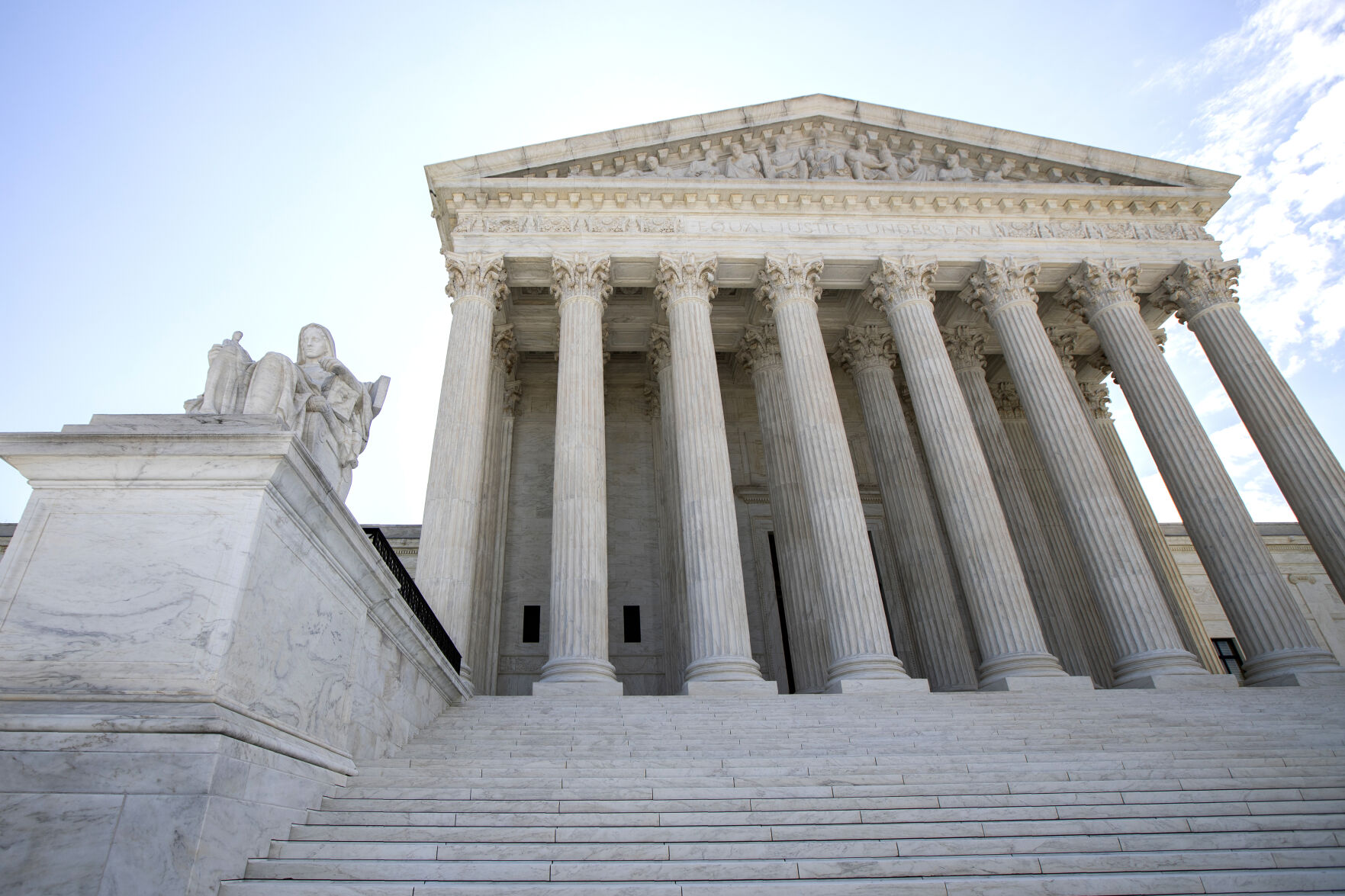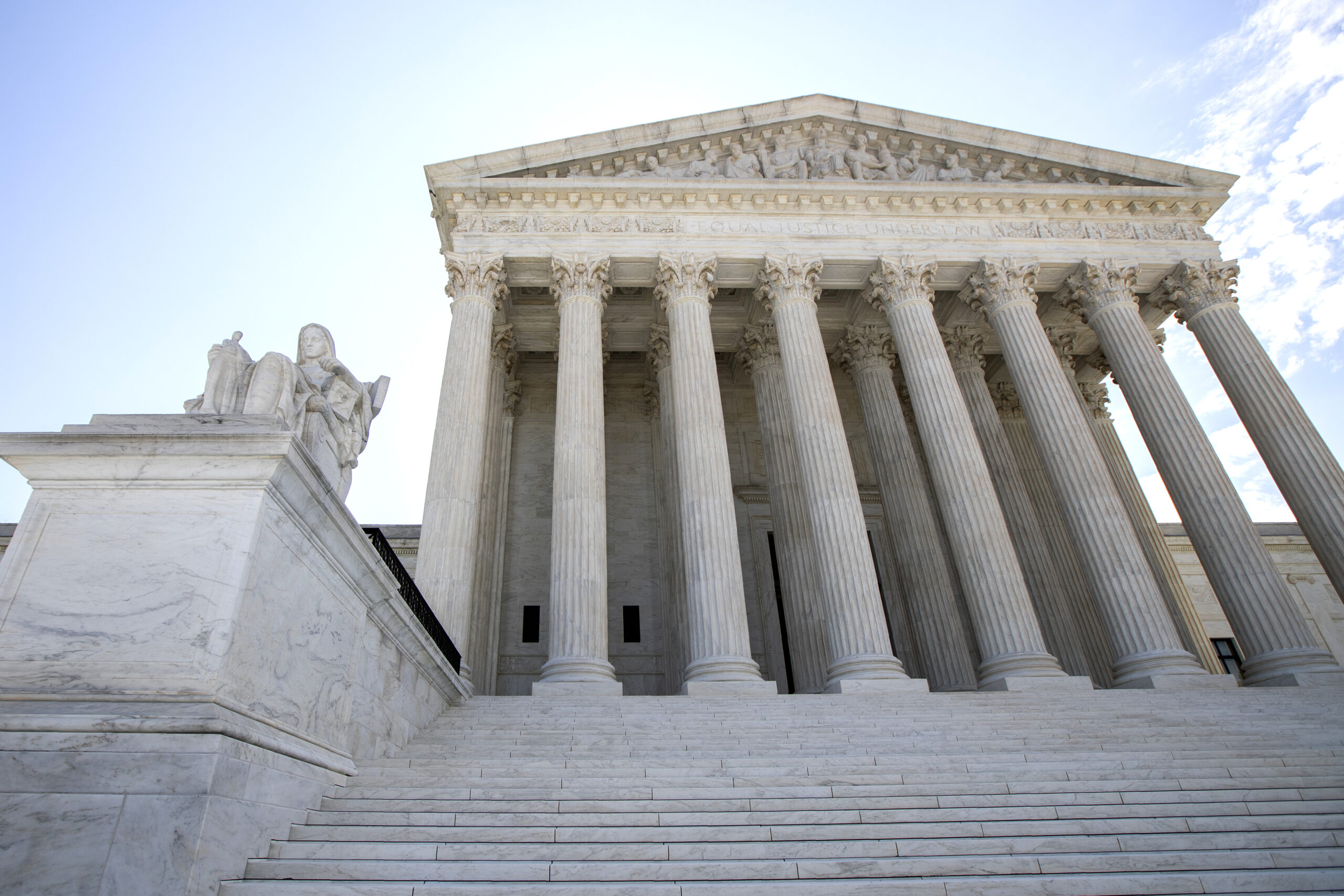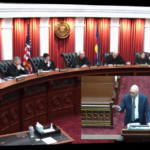Judge recommends dismissing inmate’s sex assault lawsuit against prison guard per SCOTUS directive

An inmate who claims a prison guard sexually assaulted her should not be able to sue her alleged perpetrator, a federal judge has recommended in the wake of a weeks-old U.S. Supreme Court decision that narrowed the category of people permitted to file suit against federal officials for constitutional violations.
Legal experts said U.S. Magistrate Judge Nina Y. Wang was constrained in her treatment of Dwight Phillip Bivens’ claims against a prison guard at the Federal Correctional Institute in Florence. While Bivens, who is transgender, said the guard groped her and laughed when Bivens began crying, the Supreme Court’s June 6 decision in Egbert v. Boule had closed the door on any legal accountability through the judicial system.
“Unfortunately, I think that Judge Wang’s analysis is a reasonable application of the Supreme Court’s mounting – and, in my view, deeply misbegotten – hostility to these kinds of damages suits,” said Stephen I. Vladeck, a professor at the University of Texas School of Law who has argued before the Supreme Court. “The law was already heading in this direction even before Egbert, but I think Egbert just reinforces how rare the case will be today in which federal officers can be sued for damages for even the most egregious violation of our constitutional rights.”
Lawsuits seeking damages against federal officers for constitutional violations are known as Bivens remedies (not named for the plaintiff in the Colorado case). They stem from a 1971 decision of the Supreme Court, Bivens v. Six Unknown Named Agents, in which the justices permitted a civil lawsuit involving narcotics officers’ unreasonable search and seizure to proceed under the Fourth Amendment.
Since then, the Supreme Court has acknowledged two other scenarios where a Bivens remedy exists: sex discrimination and failure to provide inmates adequate medical treatment. But federal courts continue to face questions of whether other types of constitutional rights violations should have Bivens remedies.
Dwight Bivens, representing herself from prison, argued her case would not expand the scope of Bivens remedies. She wrote that on June 22, 2020, a man identified as correctional Officer Blaike made sexual comments about Bivens’ body, then ordered her to face a wall and submit to a pat-down search.
“Plaintiff informed Blaike she was not comfortable being searched by a male officer searching her upper body,” she wrote. Blaike then reportedly groped Bivens’ breasts “painfully” until Bivens was crying. Blaike allegedly laughed in response.
Although Dwight Bivens’ sexual assault claim arose under the Eighth Amendment – which also supports the Bivens remedy for failure to provide adequate medical treatment to inmates – Wang, the magistrate judge, believed prison sexual assault was best addressed through the prison apparatus itself, not through the courts.
It was an about-face for Wang, who reached the opposite conclusion in March 2021 when analyzing another prisoner civil rights case. In that instance, officers at the same Florence prison where Bivens is incarcerated slammed a man into multiple surfaces. There, Wang found the Eighth Amendment’s prohibition on cruel and unusual punishment did allow a Bivens remedy for inmates to sue, just as they could for inadequate medical treatment.
“To find otherwise would allow individual federal officials to escape liability for the alleged unconstitutional use of force, depending on the timing of the act or so long as they provide adequate medical care afterwards,” Wang wrote at the time. “This court is not convinced that the Supreme Court, in cautioning against extending Bivens remedies to new contexts, intended for such a result.”
U.S. District Court Senior Judge R. Brooke Jackson ratified Wang’s recommendation, agreeing that whether an inmate suffered from a prison assault or deficient medical care “should make no difference in the inmate’s right to seek redress.”
However, between then and now, the Supreme Court handed down its Egbert decision dissuading courts from hearing other types of damages lawsuits against federal officials. Finding that a bed and breakfast owner in Washington could not sue the U.S. Border Patrol agent who pushed him into a vehicle and then to the ground, a 6-3 majority of the court shut the door on any near-term expansion of the ability to hold federal employees accountable.
Justice Clarence Thomas, writing for the majority, explained that courts may not allow lawsuits for constitutional violations by federal officers if there is already a system, regardless of its quality, to deal with complaints.
“So long as Congress or the Executive has created a remedial process that it finds sufficient to secure an adequate level of deterrence, the courts cannot second-guess that calibration by superimposing a Bivens remedy,” he wrote. “That is true even if a court independently concludes that the Government’s procedures are ‘not as effective as an individual damages remedy.'”
Even before the Egbert decision, the government in Dwight Bivens’ lawsuit had argued the Federal Bureau of Prisons should regulate its own staff without interference from courts.
“Eighth Amendment claims alleging sexual assault during pat-downs present a strong risk of interference with prison administration,” wrote Assistant U.S. Attorney Kyle Brenton. “Much like military officers and national security officials, prison officials must make difficult decisions that affect the lives and safety of many people.”
In her June 15 recommendation, Wang conceded that Dwight Bivens’ case was directly in line with Egbert given that other processes existed for handling inmates’ sexual assault complaints. Dismissal of the lawsuit was appropriate because “there are adequate grounds to conclude that Congress is better equipped to create a damages remedy, precluding any right to relief under Bivens,” Wang wrote.
The specific procedures available to Dwight Bivens are the Bureau of Prisons’ multistep grievance procedure as well as the Prison Rape Elimination Act of 2003. Although PREA protocols enable inmates to privately report abuse and harassment, abuse victims who do not report their assaults frequently cite their fear of retaliation or belief that prison staff will not investigate.
Matthew Cron, a civil rights attorney at Rathod Mohamedbhai, said the Supreme Court’s interpretation of Bivens remedies does not affect the ability of prisoners to sue local or state corrections officials. But inmates like Dwight Bivens are left behind because of where they are incarcerated.
“This case should be simple,” he said. “If such a sexual assault happened in virtually any other context, she would be able to seek monetary damages against the perpetrator. But simply because the assailant is a federal officer, Ms. Bivens is unable to get that same relief that she would if this assault occurred in any other context.”
He added that the Egbert decision “disturbed decades of settled law and set a nearly impossible standard for litigants to vindicate their civil rights when the violation was committed by a federal officer.”
The parties have 14 days to object to Wang’s recommendation, after which U.S. District Court Chief Judge Philip A. Brimmer will decide whether to accept or reject her findings.
The case is Bivens v. Blaike.














